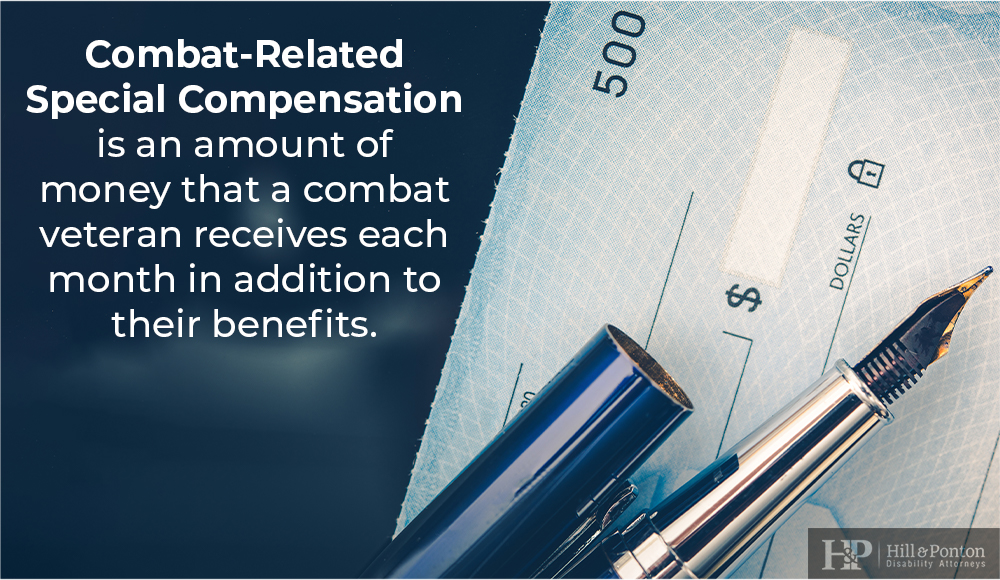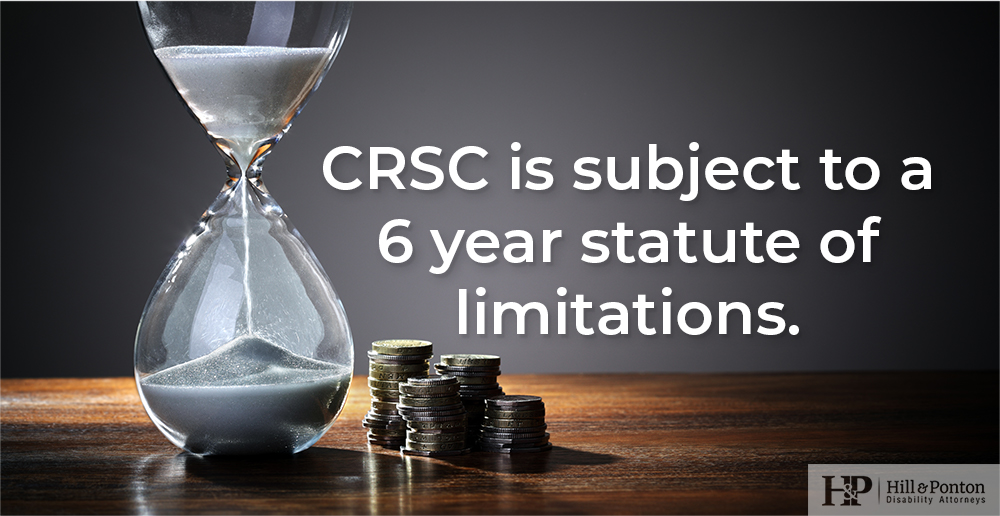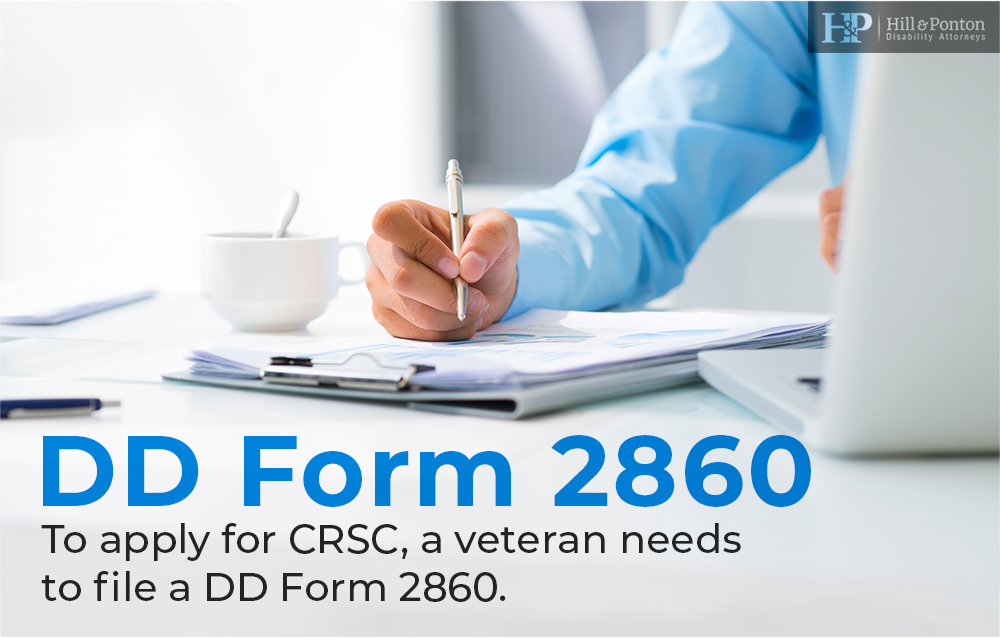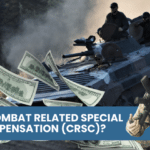Combat-Related Special Compensation (CRSC) is an amount of money that a combat veteran receives each month in addition to whatever benefits they are receiving from the military and the VA. This is an exception to the general rule that prohibits a veteran from receiving payment from both the Department of Defense and the VA.
The amount of the payment is based on several factors including; years of service, retired pay base, gross retirement pay, and combined disability rating of combat related service-connected conditions. Also, note that CRSC payments are not taxed.

Eligibility Requirements for CRSC
CRSC is available to eligible veterans for certain injuries or conditions that are combat related. This can be broken down into three elements: (1) eligible veteran; (2) eligible conditions or injuries; and (3) conditions or injuries that are combat-related.
Who is an eligible veteran?
To be eligible for CRSC, a veteran must be entitled to retired pay from a military service branch as a result of being medically retired, or as the result of serving at least 20 years. A deceased veteran is not eligible for CRSC. However, if a veteran applied for CRSC benefits before their death, the veteran’s estate is entitled to the CRSC benefits that would have been paid to the veteran.
What are eligible conditions or injuries?
The only disabilities that are eligible are service connected disabilities that have at least a 10% rating.
What are combat-related conditions or injuries?
The eligible conditions or injuries must be combat-related in order for the veteran to be entitled to CRSC. The following disabilities qualify as combat-related for purposes of CRSC:
- Injuries incurred as a direct result of armed conflict
- Injuries incurred through an instrumentality of war
- Injuries incurred in the performance of duty under conditions simulating war
- Injuries incurred while engaged in hazardous service
- Injuries for which the veteran was awarded the Purple Heart.
Also, disabilities that were service connected based on a presumption of service connection will be presumed to be combat-related. Lastly, some secondary conditions can be considered combat-related if the primary service connected disability was considered combat-related.

CRSC Retroactive Payment & Effective Dates
A veteran can submit an application for CRSC at any time. However, be aware that CRSC is subject to a 6 year statute of limitations.
This means that in order to receive full retroactive CRSC entitlement, the veteran must file their CRSC application within 6 years of the date of any rating decision that would potentially make them eligible for CRSC, or within 6 years of the date they become entitled to retirement pay, whichever is more recent.
The effective date of the CRSC award is the date the veteran became legally entitled to the award. The following is a table that shows different effective dates and the corresponding eligibility criteria.
| Effective Date | Eligibility Criteria |
| June 1, 2003 | At least 20 years of service AND receiving service connected disability compensation for a disability for which the veteran had been awarded a Purple Heart has combat related disabilities that are rated at least 60% disabling. |
| January 1, 2004 | At least 20 years of service AND receiving service connected disability compensation for a disability for which the veteran had been awarded a Purple Heart OR receiving service connected compensation for a disability that is combat related. |
| January 1, 2008 | At least 20 years of service OR less than 20 years of service and medically retired AND receiving service connected disability compensation for a disability for which the veteran had been awarded a Purple Heart OR receiving service connected compensation for a disability that is combat related. |

How to Apply for CRSC
To apply for CRSC, a veteran needs to file a DD Form 2860. A veteran should also file any DD 214s/215s, and all complete VA rating decisions, VA physician reports, and VA medical records. It is also beneficial to file any other medical records, award certificates and/or narratives, service medical records, military orders, and physical evaluation board proceedings.




